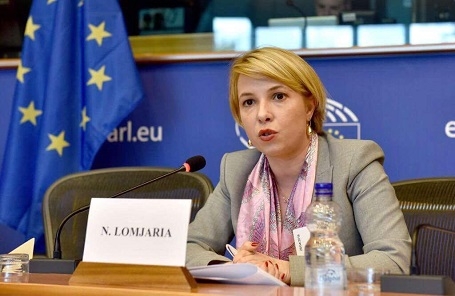Georgian Ombudsman Speaks of IDP Issues 10 Years after Georgia-Russia War
Georgia’s Public defender Nino Lomjaria stated that the conflicts in the occupied regions of Georgia, Abkhazia and South Ossetia, in the 1990s and 2008, affected more than half a million people, adding 278,103 out of them became internally displaced persons after 20% of the territory of Georgia was occupied by Russia.
“The general analysis of the IDPs' rights situation shows that their main problems have remained the same over the years. 58% of the registered IDPs are still waiting for shelter. In some facilities, IDPs have to live in difficult conditions; former collective centers have been poorly rehabilitated and repaired; the social and economic situation remains a challenge,” Lomjaria stated.
In order to realize the rights of internally displaced persons, the Public Defender says that priority should be given to the resettlement of IDPs from the facilities that threaten their lives or health and also a model focused on IDPs’ needs to be developed.
According to Lomjaria, the condition of people living along the occupation lines has worsened since 2008. The 350 km occupation line of the Tskhinvali region is controlled by 1200 border guards of the Russian Federation and the 145 km dividing line of Abkhazia is controlled by 1500 border guards.
“According to the Russian and de-facto authorities, the number of persons detained on the occupation line of Abkhazia amounted to 15,000 in 2009-2017 and the number of detainees on the occupation line of the Tskhinvali region was 1,063 in 2016-2017. Cases of deprivation of life have also occurred on the occupation lines,” she added.
Lomjaria said the locals daily face unlawful detentions. Military exercises take place at the bases of the Russian Federation, there is an issue with drinking and irrigation water, as well as poverty caused by the loss of agricultural lands as a result of the occupation.
“Recognition of the independence of Abkhazia and the Tskhinvali region by the Russian Federation and strengthening of Russian control over these regions worsened the rights situation of persons living on the occupied territories. The quality of health and education is worsening from year to year, nepotism and corruption are widespread, the population is vulnerable to authoritarian ruling, and free expression of opinion is regarded as "betrayal of the homeland." Civil society organizations and their members are under constant pressure,” she added.
The Public Defender welcomes any initiative of the Government of Georgia aimed at protecting the rights of the population living on the occupied territories and building trust between the communities split by conflicts.
By Thea Morrison












